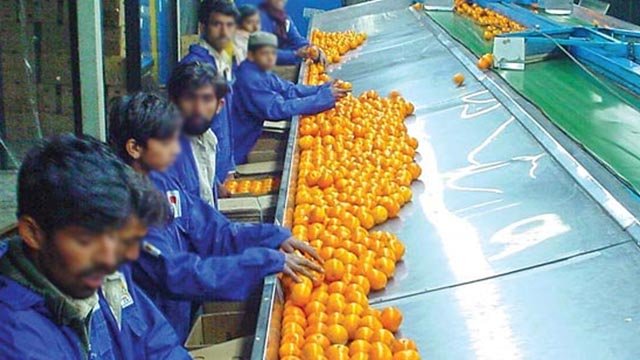The export of kinnow is grappling with significant challenges as production and exports decline due to adverse weather and outdated crop varieties in Pakistan.
Waheed Ahmed of the All Pakistan Fruit and Vegetable Association revealed that production is expected to decrease by 35 percent this year due to smog, fog, and delayed cold weather.
Adding that the exports have halved over the past five years, dropping to 2.5 million tons, with this season’s export target set at the same level.
The variety of kinnow, introduced 60 years ago, is increasingly vulnerable to climatic changes, far exceeding the typical 25-year lifespan of crop varieties globally.
Experts warn that without the introduction of three to four new kinnow varieties, exports could cease within three years.
Over half of the 250 processing factories have already shut down, resulting in significant job losses for 300,000 workers, while Rs 300 billion in investments is at risk.
Global market shifts further compound the crisis, Pakistan’s primary buyers, China and Iran, now dominate kinnow exports themselves, while due to the Ukraine-Russia conflict, it is most likely that the trade with Russia will remain disrupted, a key market for Pakistan’s small-sized kinnow.
Logistical hurdles, including higher freight charges and longer shipping times, have also impacted exports to the UK, Canada, and Europe.
To revive the industry, stakeholders urge the government to prioritize research and development, introduce new orange varieties, and expand the export season beyond its current three months.
Failure to act could leave Pakistan’s orange variety unable to compete globally.
This season, the export of kinnow is expected to generate $102.5 million in foreign exchange, but rising local prices, predicted to increase by 10 percent, may further strain the domestic market.










